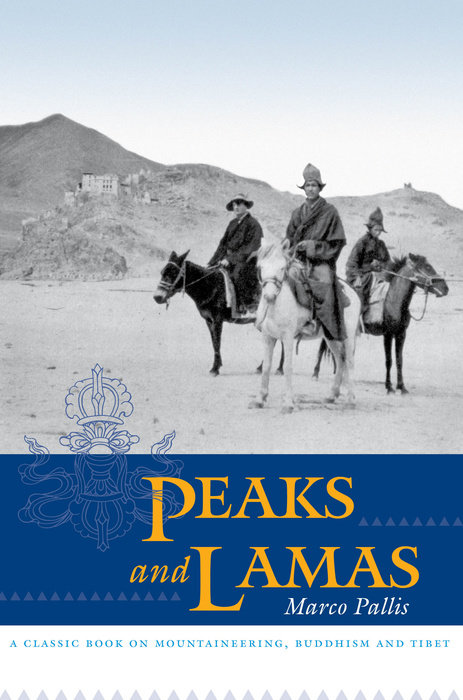Peaks and Lamas by Marco Pallis
Book Extracts
Marco Pallis (1895-1989) was a member of the Traditionalists, a group of writers who believed in the ‘Perennial Wisdom’ of all religions. In later life he worked for the Tibet Society housing many refugees in his London flat witnessing the strange and magic culture of the Tibetan refugees

Book cover of Peaks and Lamas by Marco Pallis
https://www.penguinrandomhouse.com/books/674992/peaks-and-lamas-by-marco-pallis/
Marco Pallis (1895-1989), was born in Liverpool, England to wealthy Greek parents. In 1912 he joined the Greek campaign against the Ottoman Empire and later fought for Britain in the First World War. He was a writer and adventurer and following a trip to climb in the Himalayas became fascinated by Tibetan Buddhism.
………………………………………
Among the young lamas who had come up from Lachhen for the service there was one called Samdub to whom we felt attracted from the moment we set eyes on him. His features were fine and regular and his expression suggested the youthful saint, for a look of rapture never quite left his face. He greeted us like old friends; it is curious how many people one met with whom the tedious processes of introduction could be curtailed.
Social intercourse is undoubtedly made much easier by the absence of servile manners in any class and by the traditional forms of politeness, which, once they have been complied with, indicate exactly where each man stands.
When the stage had been set for the consecration, we looked up towards the hermitage and seemed to see Chaucer’s Canterbury Pilgrims approaching in procession. Our old friend the abbot, in full pontificals and wearing a mitre, was riding, not on a palfrey, but on a sturdy mule better fitted to bear the weight of his portly figure. A leopard-skin was thrown over the saddle and a young monk led the animal, while Samdub and others, armed with drums, sacred vessels, and lighted tapers of incense, acted as acolytes. The dedication was long and complicated. Towards the end the abbot issued from his tent, scattered rice on the wall, and offered small conical cakes, after which the procession circled around the mendong several times, clockwise.
Mani walls are a typical feature of the Tibetan landscape. The one at T’hangu was an insignificant affair compared with the vast erections that mark the approaches to villages or monasteries in Tibet proper and Ladak; but it differed from them only in length and there is still time for it to grow, as offerings of additional inscribed stones by the faithful gradually extend it. The Mani wall or mendong consists of a cement base on which flat stones are laid, each with its sacred text, of which by far the commonest is the formula Om mani padme hum.
… The literal translation of the formula is “Om, the jewel in the lotus, Hum!” In a general way it may be described as an act of assent to the divine aim. Om (derived from the Sanskrit aum) stands for Brahma, “the one without second” or “the inexpressible Absolute.” As one writer has put it, “Om is the ultimate word that can be uttered, after which there remains nothing but silence.” In it, therefore are summed up prayer and praise and worship. Om is also the sound of all sounds, audible to the initiated ear, which is produced by the act of Manifestation or, as we would say, of Creation, which produces and nourishes this and other Universes. It might also be compared with Pythagoras’ music of the Spheres.
Mani means ‘Jewel”; therefore a precious thing, the Doctrine. Padme means “in the lotus”; it may refer to the world which enshrines the doctrine of Buddha (the jewel), or to the spirit in whose depths he who knows how to take soundings will discover Knowledge, Reality, and Liberation, these three being really one and the same thing under different names. Or possibly the lotus, the usual throne of divinities and saints, is simply attached as a divine attribute to the gem of doctrine. Hum is an ejaculation denoting defiance. Its utterer hurls a challenge, as it were, at the enemy at the passions such as lust, hatred, and stupidity, the poisons that drug beings into submitting to the tyranny of the Round of Existence. Or, viewed in yet another way, the adversary is no other than the cherished belief in an indissoluble “myself,” and the desire for individual recompense.
(Peaks and Lamas by Marco Pallis pub. The Woburn Press London 1974 ©️ 1939)
……………………………………….





